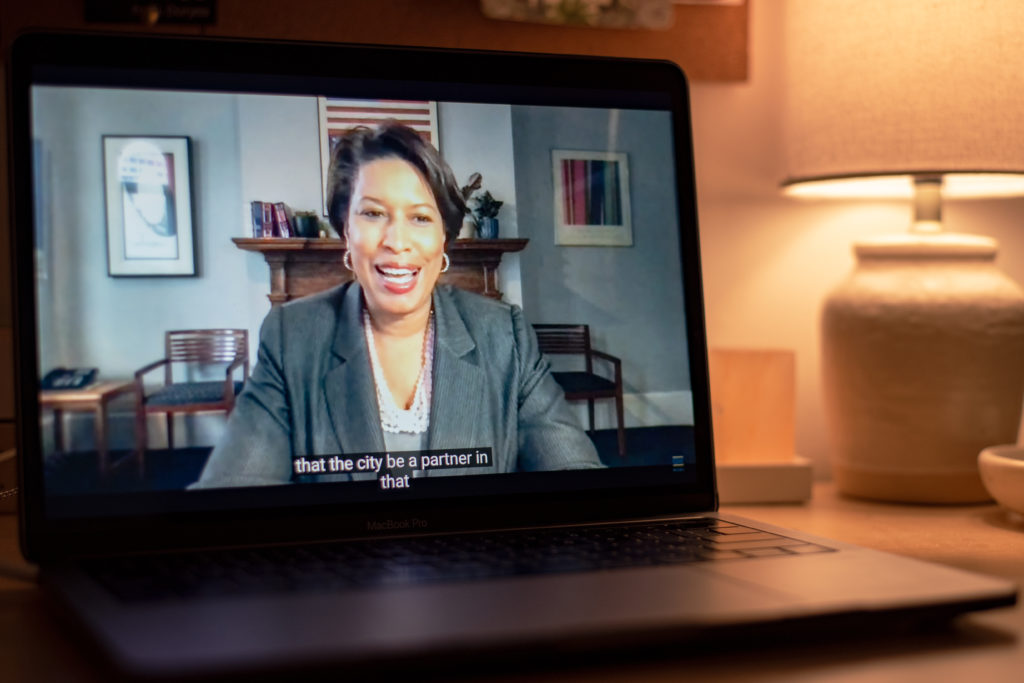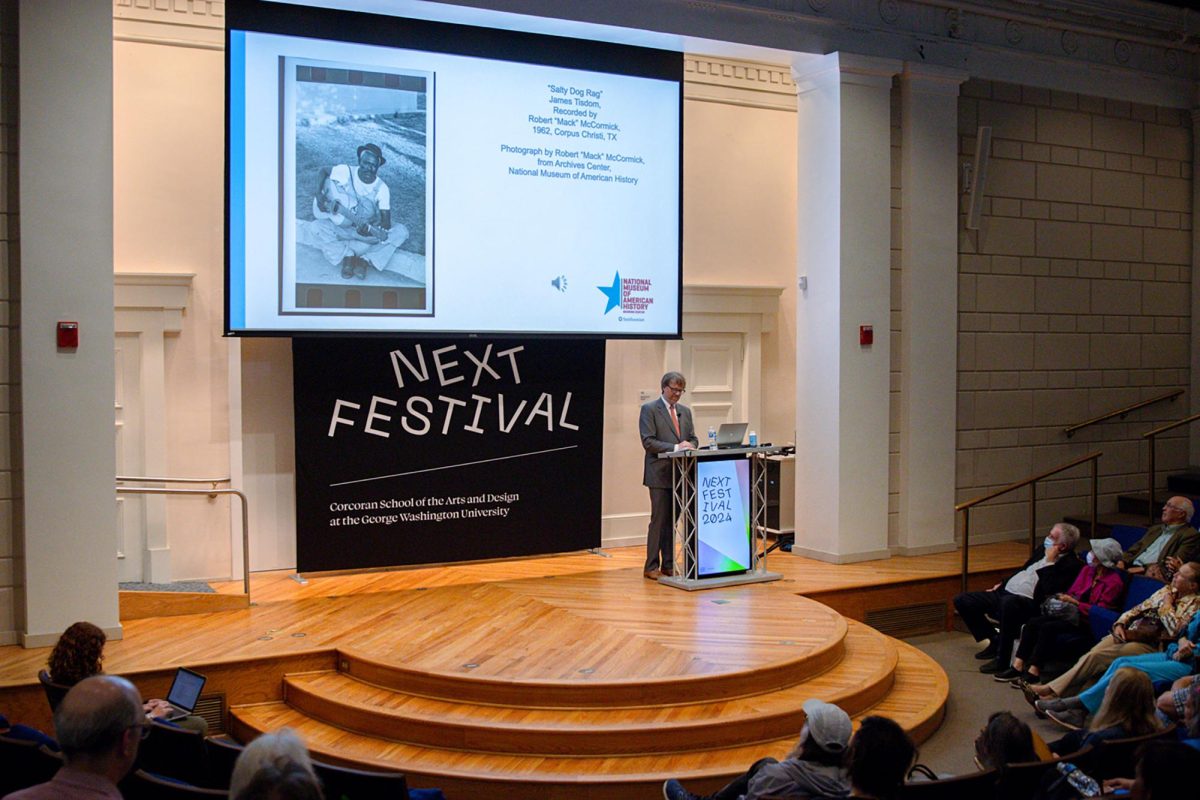Mayor Muriel Bowser discussed the District’s economic recovery in the wake of the COVID-19 pandemic in a virtual discussion hosted by the School of Business Thursday.
Bowser said attracting businesses to D.C.’s Golden Triangle neighborhood could revitalize the city economy and draw attention to racially equitable economic and housing policy after the pandemic put leadership responsibilities and city management to the test. Anuj Mehrotra, the dean of the business school, moderated the event, which was the first installment of the spring semester of the “George Talks Business” series, which hosts 30-minute conversations with business and government leaders.
Bowser said hard work, creativity, truth-telling and integrity make up the core values of her mayoral duties and drive initiatives aimed at prioritizing small businesses and maintaining diversity, equity and inclusion across the District. She said investing in underserved communities and ensuring that all residents have access to stable jobs and quality housing was at the center of her economic policies.
“I have always stressed to my team that we have to deal with the crisis at hand, but we always have to keep an eye on our agenda and make sure that it advances no matter what,” she said at the event.
Bowser said while it was “tough” to shut down the majority of the District’s businesses and tourism industry at the beginning of the COVID-19 pandemic, reopening has been much more difficult. She said the city government has worked to reinforce its central employment and commercial district to attract more businesses and in-person workers to the District.
At the beginning of the COVID-19 pandemic, the number of unemployed residents nearly doubled in April 2020, restaurants and bars temporarily shut down and Bowser issued an almost two-month-long stay-at-home order in D.C.
District officials proceeded to partner with the Golden Triangle Business Improvement District, a nonprofit organization that works to attract new business to the 44-block neighborhood from Dupont Circle to Pennsylvania Avenue, in June 2021 to help local businesses to find retail space. Bowser said she hopes the collection of multiple institutions in close proximity will inspire “synergy” between employees and businesses.
“We know that this is a time of great movement – people are thinking about where they want to work, but employers are also thinking about their space needs, and we want D.C. to always be attractive in those considerations,” she said.
Bowser said her administration has focused on ensuring every resident has equal opportunity to succeed, especially in light of the “racial reckonings” that have forced business leaders to recognize racial inequality across corporate America. In 2020, D.C. lawmakers passed the Reach Act, which created a government agency dedicated to achieving racial equity in the District, and banned the use of neck restraints by law enforcement after thousands of residents protested racial injustice after the murder of George Floyd that May.
She said recognizing racial inequality is crucial when it comes to economic justice and ensuring those interested in starting their own business or buying a home are able to do so.
“Quite frankly, I think that all of the investments that the city makes is focused on how every person – regardless of where they live or what their background is – has access to quality housing, a great education and amenities right in their own neighborhood,” she said.
Bowser said her job as mayor has been challenging, especially during the pandemic when spikes in COVID-19 cases and government lockdowns have caused local economic slumps. She said she has relied on recommendations from the Department of Health to make difficult decisions regarding public health during the COVID-19 pandemic.
“The public health information may be clear, but there are economic impacts, there are social impacts to those decisions as well,” she said. “So when there can be such significant trade-offs, you also have to be prepared to address what you may have cost from one decision.”
Bowser said taking responsibility for your decisions and the wellbeing of your constituents is a necessity for leadership. She said anyone interested in being a leader must practice in any possible realm through volunteer work and involvement in advocacy groups.
“I frequently tell people who are building their skills to get a lot of different experiences – volunteer for activities, volunteer for various groups,” she said. “My dad used to tell me, ‘If you’re going to be in the group, you might as well be the president. So if you aspire to executive leadership, then you have to practice ’”








